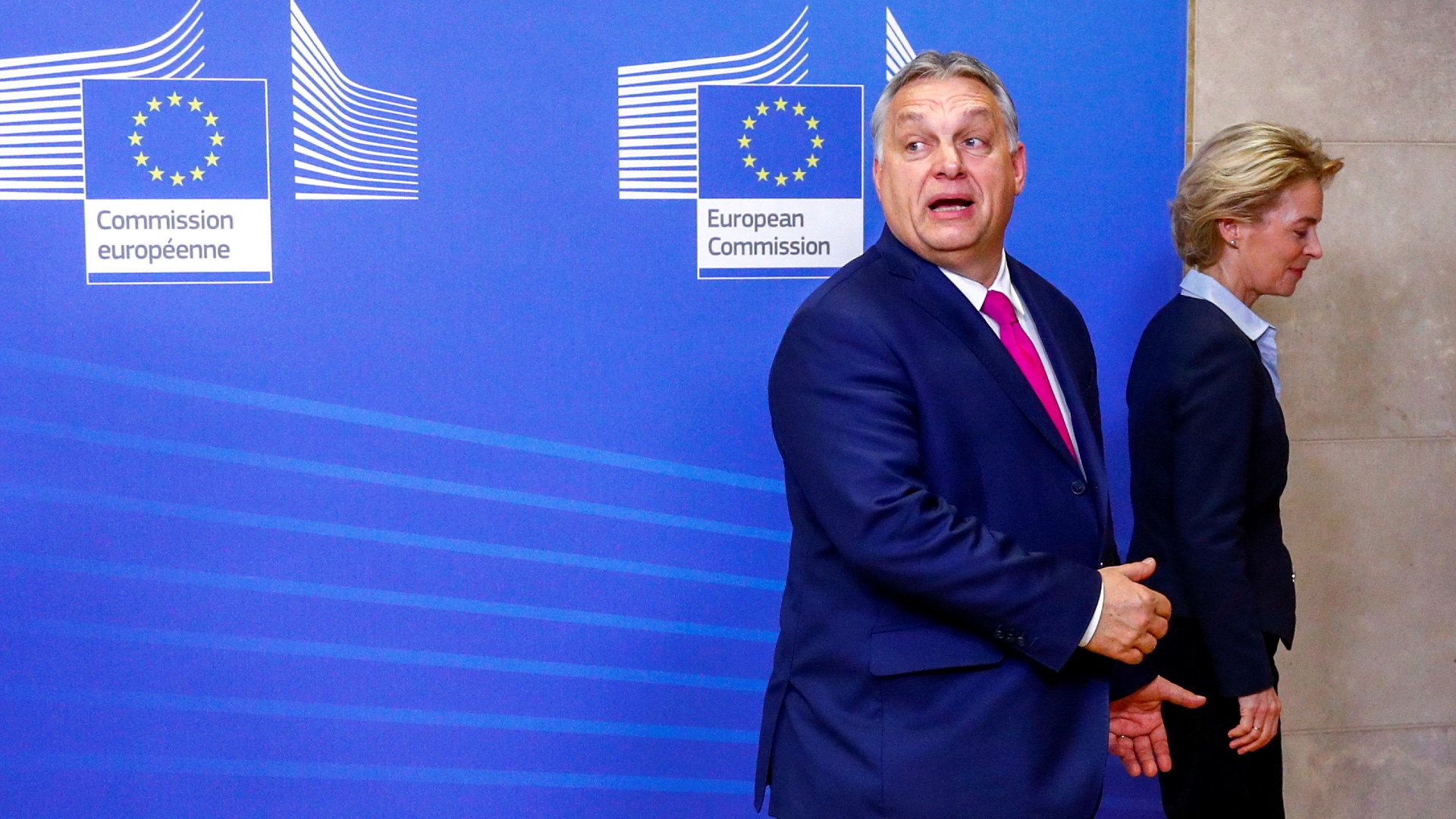More than the euro exchange rate and rising prices, the fact that the government has started to bargain with the EU is a sure sign of the deep crisis in the Hungarian economy. Yesterday, Minister Gulyás announced that they are willing to make concessions on four issues in order to get finally the withheld money. This may seem like a positive development, but I would caution everyone – especially the leaders of the EU institutions! – from falling for such a transparent ploy.
It is a well-established method and the Hungarian government has been doing it for more than a decade: it dismantles the criticisms it faces with „shoreless legalistic argumentation”, pretending that they are merely details rather than general problems at the heart of the system. Some of the many details are then highlighted and, with great grace, they undertake to change them. In doing so, they pretend to be willing to make a compromise, but only so that everything can go on as usual.
Let us look specifically at what commitments they have now made and why we should not fall for them:
1) They reduce the proportion of single actor procurement procedures: Boom, a few more procedures with fake bids from companies that have no intention of winning. This is how it has been done for a long time, from the renovation of the village outhouse to the 35-year concession of all motorways – they try to keep up the pretence of competition with friendly fake bids. Of course, if we look closely, it is often easy to see the fraud. But the great average, the number of one-actor „competitions”, is still decreasing. If the EU bought this, they would really be as stupid as the Hungarian government says they are.
2) Coercion of prosecution in corruption cases, through the courts: this sounds good, but it is actually easy to circumvent. On the one hand, the prosecutor’s office does not necessarily have to close investigations in embarrassing cases, it can easily drag out investigations for years. On the other hand, it’s fine for the court to require that accusation be brought, but against whom and with what punishment is up to the prosecutor. They throw in a few small fish that get off with a suspension, and there we are, back to square one. (The recent closure of the Öveges programme is a perfect example of the above.) Thirdly, the independence of the Hungarian courts is not much better than that of the prosecution. The only guarantee for a truly independent prosecutor is to join the European Public Prosecutor’s Office.
3) Social consultation before legislation: surely no one seriously thinks that this is of any significance, given the two-thirds majority in parliament and the governance with decrees allowed in emergency situation maintained for several years?
4) Recovery funds would be spent on energy independence: which Mészáros company would get the subsidies for energy development? Or perhaps Tiborcz, Orban’s son-in-law who has already installed LED lights so well in the name of energy efficiency? (The system-level fraud was uncovered in detail by OLAF, but the Hungarian prosecutor’s office closed the „investigation” within a few months. Tiborcz’s illegal gains were around €10 million) Would they hire Russian or Chinese contractors? It makes no difference what they spend it on paper, once the money goes into the pockets of the same people!




